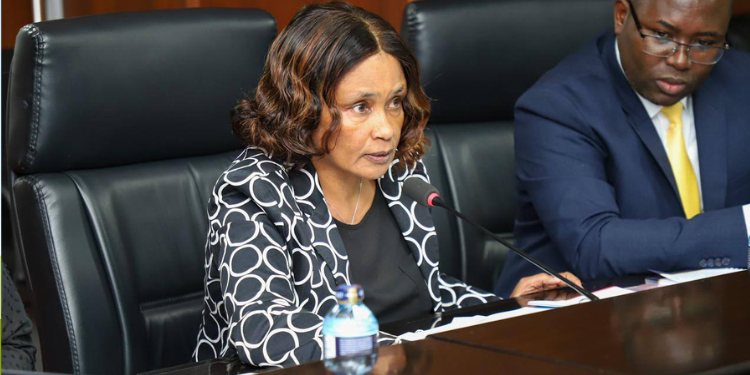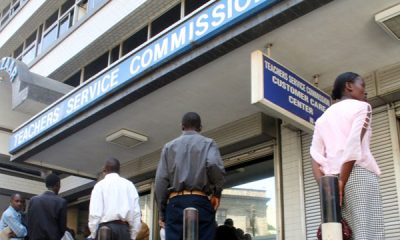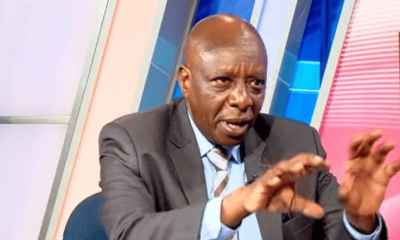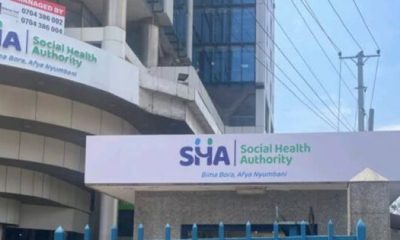News
Teachers To Be Moved From Minet to SHA
The SHA has already empanelled hospitals, ensuring teachers will retain the freedom to choose their preferred healthcare facilities.

The Teachers Service Commission (TSC) is preparing for a significant healthcare overhaul that will see all 415,000 teachers and their dependents moved from their current medical insurance provider to the newly established Social Health Authority by December 1, 2025.
Acting TSC CEO Evaleen Mitei revealed the ambitious transition plan during her appearance before the National Assembly’s Committee on Education, announcing that teachers will be onboarded to the Public Officers’ Medical Scheme Fund under the Social Health Authority once their current contract with the Minet Kenya-led consortium expires on November 30, 2025.
The announcement represents the culmination of months of behind-the-scenes planning that began in May 2025, involving multiple government agencies working to address the growing dissatisfaction with the current healthcare arrangement.
Teachers across the country have been voicing complaints about service quality under the Minet Kenya cover, calling for a change of provider amid concerns about delays, limited hospital networks, and bureaucratic hurdles.
The transition involves complex logistical and legal considerations, prompting the formation of a technical working group comprising representatives from the National Treasury, the Attorney-General’s office, the National Police Service, and the Social Health Authority.
This multi-agency approach reflects the scale and complexity of moving nearly half a million teachers and their families to a new healthcare system within a matter of months.
Legal Director Calvin Ayuor sought to reassure legislators that the new scheme would maintain the structural benefits teachers currently enjoy while potentially offering improvements.
The SHA has already empaneled hospitals, ensuring teachers will retain the freedom to choose their preferred healthcare facilities.
However, legislators expressed concerns about the tight timeline for developing the transition framework and the practical challenges of onboarding such a large population in just two months.
The current Minet Kenya medical cover operates on a tiered system that aligns benefits with job classifications.
Chief principals enjoy the most comprehensive coverage, including inpatient limits of up to three million shillings, outpatient cover of 450,000 shillings, and substantial maternity and funeral benefits.
Senior secondary school teachers access inpatient cover of 1.3 million shillings, while primary school teachers at entry level receive inpatient coverage of one million shillings with varying outpatient allocations.
Despite these seemingly generous provisions, the Minet arrangement has faced significant criticism.
Some network hospitals have been temporarily suspended following investigations into fraudulent practices, while teachers have complained about delays in pre-authorization processes, mandatory referrals from specific facilities, and inadequate numbers of qualified doctors at empanelled hospitals.
The healthcare transition occurs against the backdrop of broader changes in Kenya’s medical insurance landscape and represents a return to government-managed healthcare for public sector employees.
Prior to 2012, teachers received monthly medical allowances that proved insufficient for actual healthcare costs, leading to the establishment of the current medical insurance scheme for teachers, civil servants, and disciplined forces.
President William Ruto’s recent meeting with teachers’ unions and associations at State House added political weight to the transition, with promises of a more comprehensive medical insurance scheme than the current Minet arrangement.
The President announced the formation of a technical committee involving the TSC, Ministry of Education, teachers’ unions, and head teachers’ associations to review the new scheme’s implementation.
The announcement comes at a crucial time for the teaching profession in Kenya, as educators continue to face various challenges ranging from working conditions to career progression.
The success of this healthcare transition could significantly impact teacher morale and the government’s relationship with education sector stakeholders.
TSC officials emphasized their commitment to stakeholder engagement, with Acting CEO Mitei scheduled to meet with officials from the Kenya National Union of Teachers and the Kenya Union of Post Primary Education Teachers to discuss the transition details.
The commission has assured teachers that they will not lose any existing benefits under the new arrangement and has submitted cost projections to the National Treasury for budget allocation.
As the November 30 deadline approaches, the education sector watches closely to see whether this ambitious healthcare transition can deliver on its promises of improved medical services for Kenya’s teaching workforce.
The success or failure of this move could have lasting implications for public sector healthcare policy and the government’s credibility in managing large-scale institutional changes.
The TSC’s confidence in completing the framework by the end of September 2025 will be tested against the practical realities of coordinating with multiple government agencies, securing adequate funding, and ensuring seamless service delivery for hundreds of thousands of beneficiaries during the transition period.
Kenya Insights allows guest blogging, if you want to be published on Kenya’s most authoritative and accurate blog, have an expose, news TIPS, story angles, human interest stories, drop us an email on [email protected] or via Telegram
-

 Business1 week ago
Business1 week agobetPawa Empire Crumbles: Mr Eazi’s Betting Gambit Unravels Amid Partner’s Shadowy Deals
-

 News6 days ago
News6 days agoDCI Probes Meridian Equator Hospital After Botched Procedure That Killed a Lawyer
-

 Business5 days ago
Business5 days agoMinnesota Fraud, Rice Saga, Medical Equipment Deal: Why BBS Mall Owner Abdiweli Hassan is Becoming The Face of Controversial Somali Businessman in Nairobi
-

 Business1 week ago
Business1 week agoKRA Boss Humphrey Watanga In Big Trouble In Sh5.5 Billion Rice Import Scandal
-

 Investigations2 weeks ago
Investigations2 weeks agoKERRA Homa Bay Region Manager Calvince Thomas Accused of Swindling Businessman Ksh 2 Million in Phantom Tender Deal
-

 Business1 week ago
Business1 week agoState Set to Demolish Pastor Ng’ang’a’s Church in Sh28 Billion Railway City Push
-

 Business7 days ago
Business7 days agoControversial Turkish Firm Celebi Canceled in India Over Security Concerns Acquires Strategic Property in Nairobi’s Main Airport
-

 Politics5 days ago
Politics5 days agoYour Excellency! How Ida’s New Job Title From Ruto’s Envoy Job Is Likely to Impact Luo Politics Post Raila































